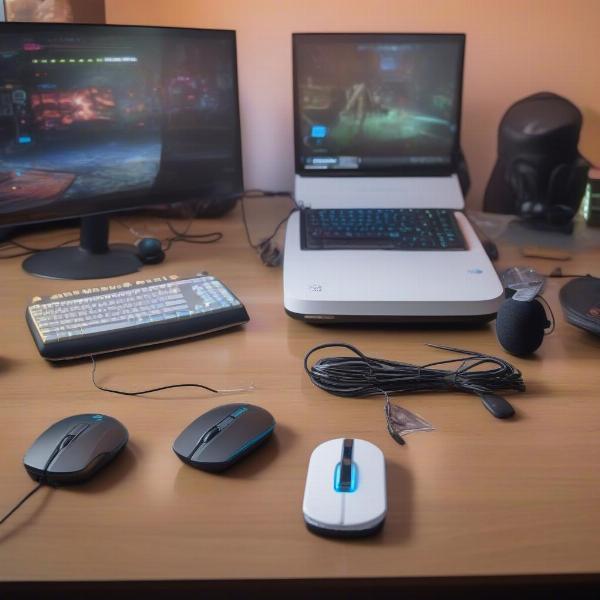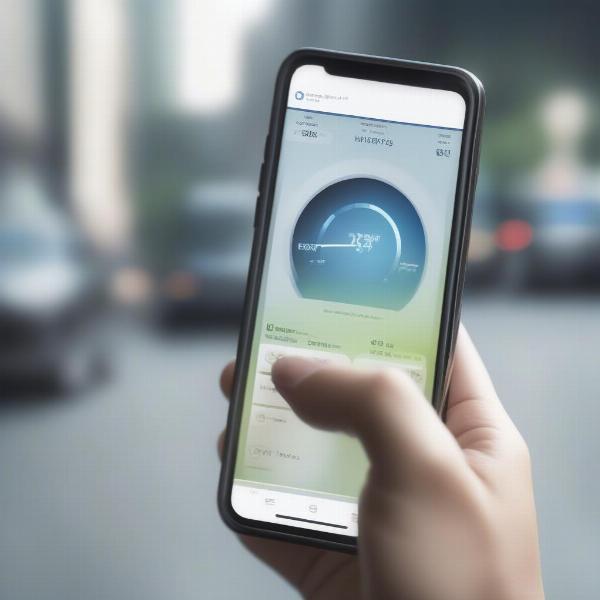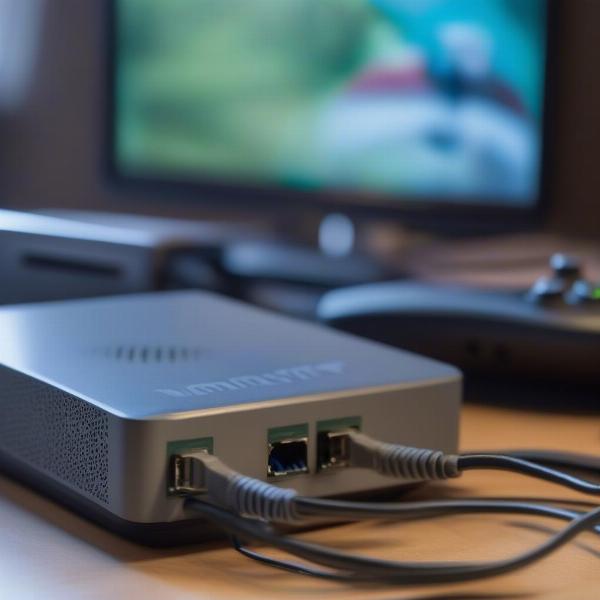5G home internet is rapidly becoming a popular alternative to traditional broadband, but can it really handle the demands of online gaming? Here at SupremeDuelist.blog, we dive deep into the tech to give you the real scoop. We’ll explore everything from latency to bandwidth and break down whether 5G can actually provide a smooth and competitive gaming experience.
This article will explore the ins and outs of gaming with 5G home internet, examining the advantages and potential drawbacks. We’ll also consider different game genres, what to expect from various 5G providers, and provide key tips for optimizing your setup for lag-free gameplay.
Understanding 5G Home Internet for Gaming
5G home internet uses the same cellular network as your smartphone, but is beamed to a stationary receiver inside your home. It offers the potential for much faster download and upload speeds than older internet technologies such as DSL. However, it’s not quite the same as fiber, and there are several factors to consider when weighing it up for gaming. Latency, bandwidth, and the consistency of the connection are all crucial to a good online gaming experience, and understanding how 5G performs in each of these areas is important.  5g home internet gaming setup
5g home internet gaming setup
Key Gaming Factors: Latency, Bandwidth, and Consistency
- Latency: This is the delay (measured in milliseconds) between an action in the game and its reflection on the screen. Low latency is critical for fast-paced games, such as fighting games, first-person shooters, and MOBAs, where even small delays can lead to a competitive disadvantage. 5G can sometimes experience higher latency than fiber.
- Bandwidth: This refers to how much data can be transferred in a given amount of time, measured in megabits per second (Mbps). Higher bandwidth allows for faster downloads of games and updates. It also ensures that multiple devices in the household can connect without slowing the network down. Most modern online games don’t need massive bandwidth during active play but need a stable connection.
- Consistency: A stable internet connection that provides reliable speeds is essential. A fluctuating signal will lead to lag spikes, rubberbanding, and disconnections, ruining your gaming session. 5G can be affected by weather, distance from cell towers, and network congestion.
5G Gaming Performance: What Can You Expect?
The quality of 5G gaming experience can vary significantly depending on multiple factors. It’s not a universal solution, and your results can hinge on the specifics of your location, your service provider, and even the time of day.  5g speed test for online gaming
5g speed test for online gaming
Factors Affecting 5G Gaming Performance
- Distance from Cell Tower: The further you are from a 5G cell tower, the weaker your signal will likely be, potentially leading to higher latency and slower speeds.
- Network Congestion: Like any network, 5G can become congested during peak times, which can lead to slower speeds and increased latency. This is more common in densely populated areas.
- Type of 5G Technology: Not all 5G is the same. There are different frequency bands and technologies (e.g., mmWave, Sub-6GHz), each offering different speeds and coverage areas. mmWave is faster but has a very limited range, while Sub-6GHz has broader coverage but slower speeds.
- Obstructions: Walls, trees, and even the type of glass in your windows can interfere with the 5G signal.
- Service Provider: Different 5G providers may offer varied performance due to their network infrastructure and technology.
“5G technology is a constantly evolving landscape. What was considered acceptable performance yesterday may be dramatically improved tomorrow with infrastructure upgrades. Gamers should always monitor their connection and be ready to adjust if needed.” – Dr. Anya Sharma, Network Performance Analyst
How Does 5G Compare to Other Internet Options for Gaming?
- Fiber: Fiber optic internet is generally considered the gold standard for gaming. It offers the lowest latency and most consistent performance. 5G can be competitive but is unlikely to consistently match the performance of a good fiber connection, especially on latency.
- Cable: Cable internet is a middle-ground option that performs well for gaming, but it is susceptible to congestion and can have inconsistent upload speeds, which might impact certain online games or streaming setups. 5G often outperforms older cable technologies, especially in upload speed.
- DSL: DSL is often the slowest option and is generally not recommended for online gaming due to its limited speeds, high latency, and low reliability. 5G should be a significant upgrade over DSL for almost all users.
Is 5G Home Internet Good for All Games?
The suitability of 5G for gaming varies by game genre. Some are more forgiving of network fluctuations, while others rely on precise timing and consistent connectivity.
Gaming Genres and 5G Performance
- Fast-Paced Competitive Games: First-person shooters (FPS), MOBAs (Multiplayer Online Battle Arenas), and fighting games are heavily dependent on low latency and consistent connections. 5G can work for these, but you might experience occasional lag, depending on your connection quality.
- MMORPGs: Massively Multiplayer Online Role-Playing Games are generally more forgiving in terms of latency, but require a stable connection to avoid disconnections. 5G can typically handle these well, as long as it is consistent and the data transfer requirements aren’t extreme.
- Single-Player Games: Most single-player games are not affected by internet speed. As long as downloads are handled, 5G provides no benefit during play itself.
- Turn-Based Strategy and Simulation Games: Turn based and simulation games are generally not dependent on having a super-low ping and can often be played well even on lower connections. 5G excels at this because they don’t require constant fast data streaming.
Optimizing 5G for Gaming
Even if your 5G connection isn’t perfect, there are some steps you can take to optimize it for gaming:
- Place Your Receiver Strategically: Experiment with different locations for your 5G receiver in your home. Placing it near a window, facing in the direction of your nearest cell tower can significantly improve performance.
- Use an Ethernet Connection: Whenever possible, connect your gaming device directly to the 5G router with an ethernet cable. This provides a much more stable connection than WiFi, and reduces latency.
- Minimize Network Congestion: Avoid heavy network usage during peak gaming hours. Ask other users on your network to avoid tasks such as downloading large files or streaming high-resolution videos while you’re gaming.
- Use QoS (Quality of Service): Many modern routers have QoS settings which allow you to prioritize gaming traffic. This can help ensure your gaming receives more bandwidth and lower latency.
- Update Your Router Firmware: Keeping your router’s firmware updated can sometimes improve performance and stability.
 5g home internet gaming ethernet connection
5g home internet gaming ethernet connection
“For serious gamers, a wired connection to a 5G router can make a huge difference. It minimizes signal interference and ensures a more stable gaming experience. WiFi is convenient, but Ethernet is still king when it comes to reducing lag.” – Ben Carter, Competitive Gamer and Tech Analyst
Common Questions About Gaming on 5G Home Internet
Let’s address some of the most common questions users have about gaming with 5G home internet.
Can you game on 5G home internet if you live in a rural area?
It’s possible to game on 5G in rural areas, but performance is often highly dependent on the proximity to the nearest 5G tower and the type of 5G technology deployed in the area. The signal might be weaker, leading to higher latency and slower speeds compared to more urban locations.
Is 5G home internet more expensive than cable?
Pricing for 5G home internet varies by provider and location. It’s important to compare the cost of 5G with other internet services in your area to determine if it’s a good value for you. In some locations, 5G might be more affordable than fiber, while in others it might be the same price as cable.
What about 5G mobile gaming?
5G can significantly improve mobile gaming, offering faster downloads and lower latency when playing on your phone or tablet, particularly with compatible games. Keep in mind that mobile gaming performance can also be heavily impacted by your location and mobile network’s strength.
Will 5G home internet get better for gaming over time?
Yes, it’s expected that 5G home internet performance will continue to improve as cellular network infrastructure is expanded and upgraded. New technologies and network optimization can lead to lower latency, faster speeds, and more consistent connections for all users.
Can I stream my gameplay using 5G internet?
Yes, you can stream your gameplay with 5G internet. However, it’s important to ensure you have sufficient upload speeds for a smooth stream. Test your connection before going live, and optimize your streaming software for the best results.
How can I check my ping on 5G home internet?
You can check your ping (latency) by using an online speed test tool or within your game settings, where many games display your current connection stats. Choose a nearby server in the speed test to get accurate results.
Conclusion
So, can you game on 5G home internet? The answer is a qualified yes. 5G offers compelling speed and flexibility for many users, but it’s not a perfect solution for every gamer. If you need the absolute lowest latency possible, fiber is still king, but 5G can be a viable and increasingly competitive alternative, especially for gamers with slightly less stringent requirements. As 5G continues to evolve and become more widely available, it will become an even more appealing option for gaming enthusiasts. Keep following Supreme Duelist Blog for more insights and analysis on the gaming world and beyond. Ready to level up your gaming setup? Explore our other articles for more tips and tech reviews.
Leave a Reply